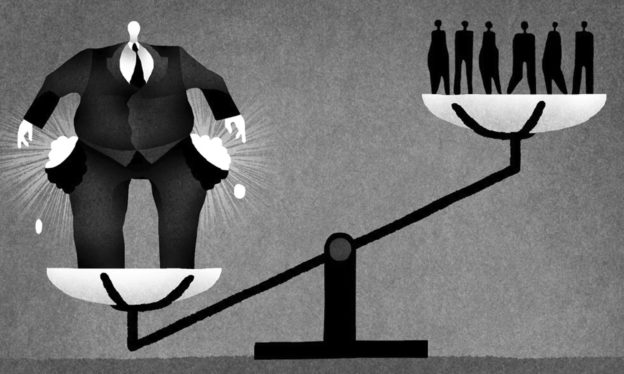This week we published a paper building on Robb Rutledge’s 2014 happiness model (my summary here), but asking whether we could also capture fluctuations in happiness that relate to what’s happening to other people around you.
We used a gambling task in which people partnered up with another player , and could see when they won or lost money. Every 4-5 trials we asked them to report how happy they felt:
We found that inequality between players tends to reduce happiness – both when your better offer than your partner (‘guilt’) and when they’re better off than you (‘envy’):
One of the findings we’re most excited about is that the model we build of your happiness, which includes these representations of how unhappy inequality makes you, relates to how generous you are:
People who are more sensitive to guilt tend to be more generous (in a traditional task from economics called the Dictator game [this doesn’t involve having dreadful hair or smoking enormous cigars, you are given a pot of money and have to choose whether to give any of it to your partner]).
Economists have struggled to explain or predict who will be generous in such games, and it seems like we’ve found an intuitive explanation: people who are more emotionally sensitive to inequality tend to behave more generously.
On a macro level, our findings chime with observations from social science (summarised in this wonderful book), which suggests that economic inequality can have profoundly negative social, cultural, and even economic impacts. Countries with very low inequality, such as Denmark, tend to do very well in world happiness rankings.
Anybody can read the paper at Nature Communications now- it’s open access. There’s also some media coverage, listed here.



